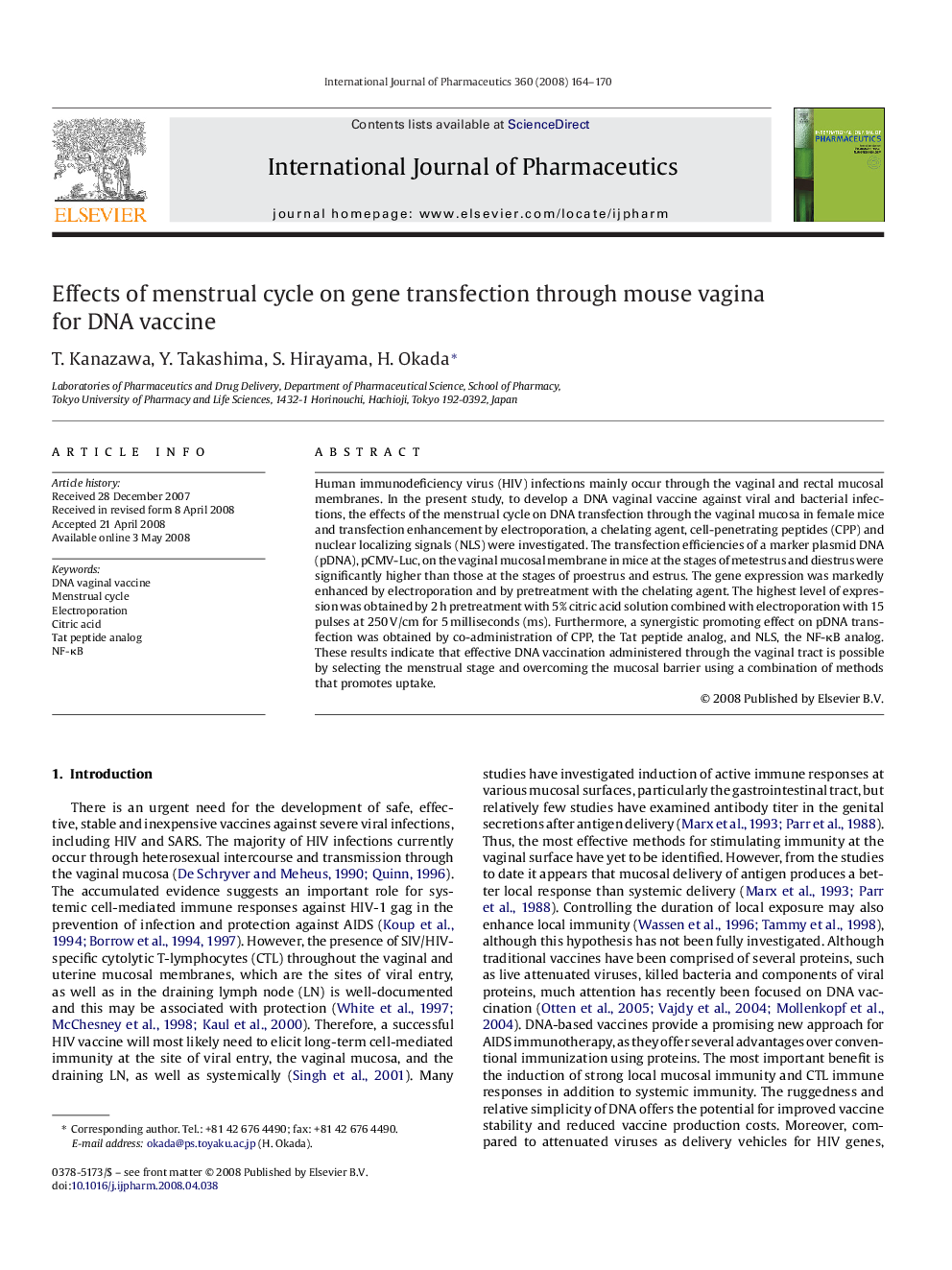| Article ID | Journal | Published Year | Pages | File Type |
|---|---|---|---|---|
| 2505105 | International Journal of Pharmaceutics | 2008 | 7 Pages |
Human immunodeficiency virus (HIV) infections mainly occur through the vaginal and rectal mucosal membranes. In the present study, to develop a DNA vaginal vaccine against viral and bacterial infections, the effects of the menstrual cycle on DNA transfection through the vaginal mucosa in female mice and transfection enhancement by electroporation, a chelating agent, cell-penetrating peptides (CPP) and nuclear localizing signals (NLS) were investigated. The transfection efficiencies of a marker plasmid DNA (pDNA), pCMV-Luc, on the vaginal mucosal membrane in mice at the stages of metestrus and diestrus were significantly higher than those at the stages of proestrus and estrus. The gene expression was markedly enhanced by electroporation and by pretreatment with the chelating agent. The highest level of expression was obtained by 2 h pretreatment with 5% citric acid solution combined with electroporation with 15 pulses at 250 V/cm for 5 milliseconds (ms). Furthermore, a synergistic promoting effect on pDNA transfection was obtained by co-administration of CPP, the Tat peptide analog, and NLS, the NF-κB analog. These results indicate that effective DNA vaccination administered through the vaginal tract is possible by selecting the menstrual stage and overcoming the mucosal barrier using a combination of methods that promotes uptake.
